King Charles, Prince Andrew’s brotherly battle royal
A conflict-averse King could enlist the help of his brother’s ex-wife to keep the peace and stop the series of troubling headlines.
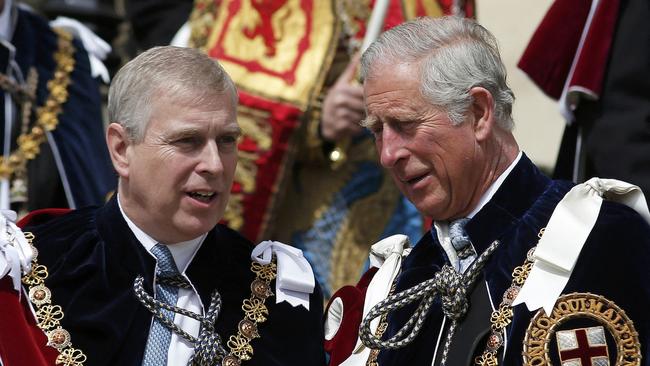
When Prince Andrew was born in 1960 his mother was besotted. “The baby is adorable,” Elizabeth II wrote to her second cousin, Lady Mary Whitley. “All in all, he’s going to be terribly spoilt by all of us, I’m sure.”
The late queen’s soft spot for her second son did not go unnoticed by courtiers or, indeed, by her other children.
Charles in particular could see it was often Prince Andrew who stole the show, once saying ruefully that Andrew was “the one with the Robert Redford looks of the family”. As heir to the throne, Charles had to carve out a role for himself and could not go to war.
Andrew, meanwhile, returned from the Falklands conflict a hero. Yet even the late queen’s affection for Andrew could not restore his fortunes when he was mired in controversy over his friendship with convicted sex offender Jeffrey Epstein.
Five years ago, in a decision understood to have been taken in conjunction with Charles and Prince William, the queen moved to strip Andrew of his official royal role.
Yet there were public signs that Andrew still had his mother’s support.
It was Andrew who was chosen to walk arm in arm with the queen when she arrived at Westminster Abbey at a memorial service of thanksgiving for her husband, Prince Philip. Earlier in the day, Andrew had also been by her side when she travelled down from Windsor by car.
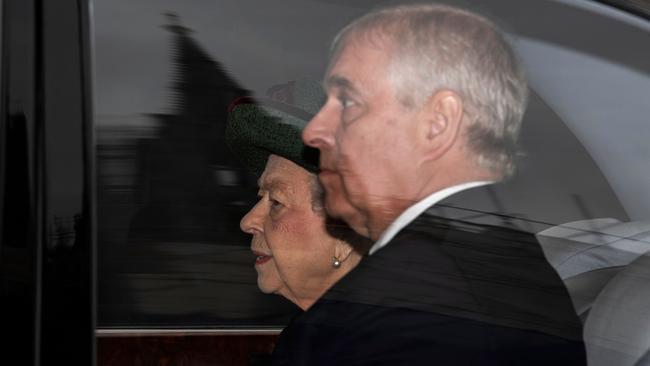
There could be no clearer sign of her affection for a son who, at that stage, had lost public support. Charities had distanced themselves from Andrew after his association with Epstein, and even Pitch@Palace, the duke’s scheme to support entrepreneurs, removed his name from its website.
When the queen died, Andrew’s grief was laid bare in a statement which read: “Mummy, your love for a son, your compassion, your care, your confidence I will treasure forever.”
On a practical footing, Andrew had also lost his most ardent ally. With the start of the new reign in September 2022, Andrew’s office was finally moved out of Buckingham Palace.
If the late queen had a tendency to overlook Andrew’s failings, Charles made it clear, privately at least, that he would not. The King told Andrew, 11 years his junior, that he would not be returning to public duties. Andrew no longer holds honorary military titles, nor is he permitted to wave down to the public from the Buckingham Palace balcony.
If Charles thought Andrew might withdraw from public life in a dignified and discreet manner, however, he would be proved wrong.
Another memorial service, this time for King Constantine II, put Andrew back on parade.
When Andrew arrived along with other family members, he proudly led the way down to St George’s Chapel in Windsor.
The “optics”, as one palace insider put it, were “sub-optimal”.
That a duke with connections to Epstein – and one who had settled a civil case out of court with one of the victims who accused Andrew of sexual assault – could be leading the royal family in such a public setting led courtiers to despair.
It is true that Andrew has consistently denied all allegations of impropriety and wrongdoing. Nevertheless, the controversy surrounding the Newsnight interview he instigated means he will never again be offered a public royal role.
While recognising he poses a reputational risk to the Crown, some within the palace argue that there is little more that can be done. Andrew holds no official role and he is no longer in receipt of either public money from the taxpayer or private money from the King, who cut off his allowance earlier this year.
Andrew remains a member of the Order of the Garter, the oldest order of chivalry, but no longer participates in the public Garter Day procession.
In the past, membership has been withdrawn only when a member has been found guilty of treason.
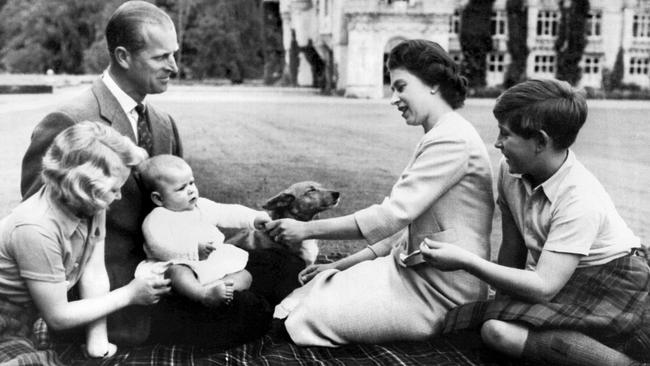
Courtiers maintain that Andrew is bound to the King “by a bond of blood” and that will hold sway, come what may. Critics, however, may start to wonder if Charles should take a firmer line with the errant duke.
Sources close to Charles say Andrew should do the decent thing and take the decision out of the King’s hands by keeping a low profile. A good start, they suggest, would be for him to enter Buckingham Palace by a discreet side door when the royal family gather en masse for their early Christmas lunch later this week.
The only problem with this is that Andrew has hitherto ignored advice to act in the King’s best interests. Take the “siege of Royal Lodge”, the 30-room estate where the duke lives with his former wife, Sarah, Duchess of York.
The King wanted Andrew to relocate to Frogmore Cottage and offered to continue to pay a generous allowance to both Andrew and Sarah.
Andrew refused and instead appears to have found the funds to stay at the lodge.
Yet this raises new questions about how Andrew has made his money and whether in doing so he has traded on his position and his familial connection to Britain’s head of state.
For Charles, a move to Frogmore Cottage would have the benefit of bringing Andrew within the security cordon of the Windsor estate, with all the added security that entails.
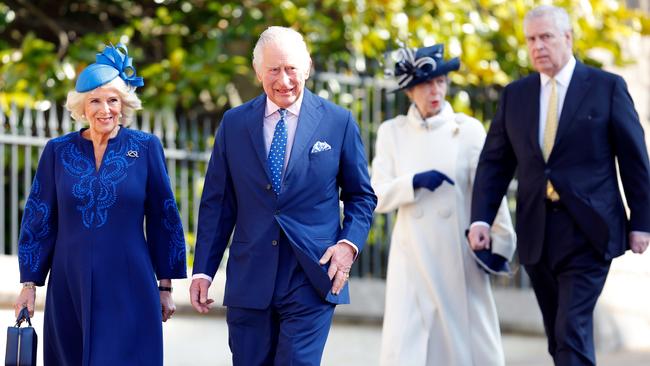
One of the revelations in the past week in the latest controversy involving the duke that has provoked the ire of courtiers has been the letter written to the alleged Chinese spy from Dominic Hampshire, a senior adviser to Andrew, who said they had “wisely navigated our way around former private secretaries and we have found a way to carefully remove those people who we don’t completely trust”. Hampshire wrote further: “Under your guidance, we found a way to get the relevant people unnoticed in and out of the house in Windsor.”
A statement released on Friday from the duke’s office said “the duke met the individual through official channels, with nothing of a sensitive nature ever discussed”.
It is the latest in a long string of negative headlines generated by Andrew’s business dealings. How the King reacts now could be crucial to shielding his reign from any reputational repercussions associated with the latest story about Andrew.
Charles, who is not fond of confrontation, does know someone who could help with this. It was thought that the duke’s former wife might act as a bridge between the brothers. Sarah says she adores the King and “loves” that he calls her “Fergie”. She clearly appreciates her close ties to the royal family. “I wish they’d ask me to do more,” she said in a Relative Values article for The Sunday Times.
Although it is highly unlikely any formal role would be offered, her services as an informal intermediary could prove beneficial to the King, who has to navigate the Andrew problem while his cancer treatment continues.
It was hoped that Sarah might “help Andrew see sense” about moving out of the Royal Lodge and into a property those at the palace see as more befitting his status. If she could persuade her ex-husband to keep away from the camera lenses over the Christmas period, too, it would be the perfect present for Charles.
The Times


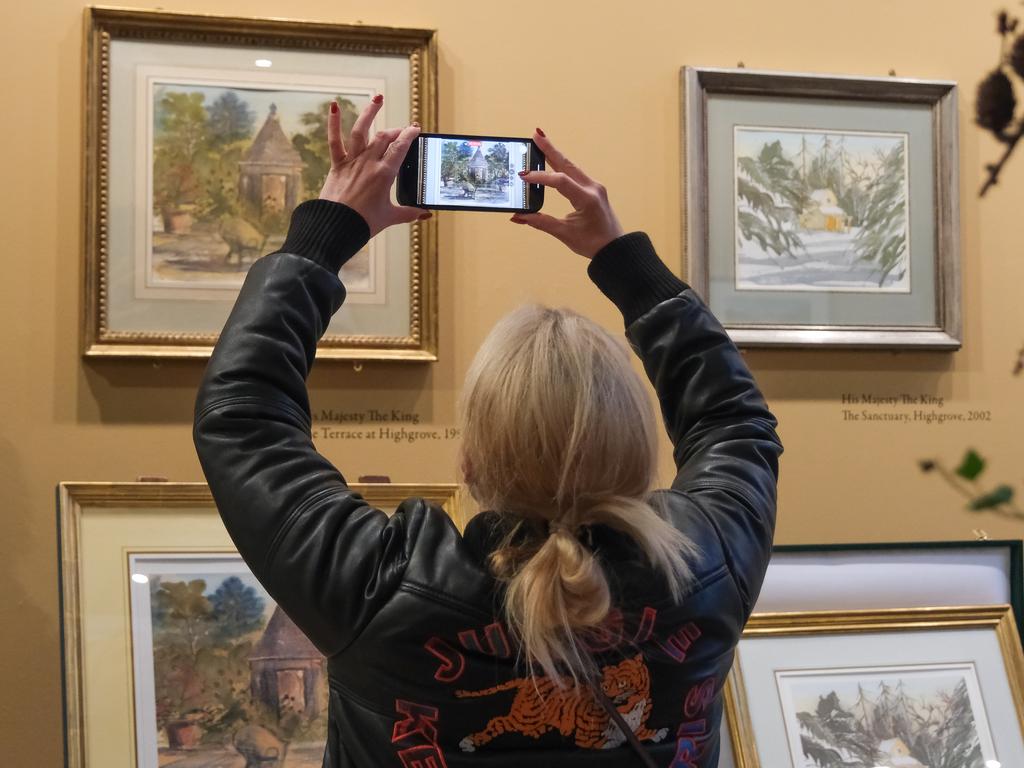



To join the conversation, please log in. Don't have an account? Register
Join the conversation, you are commenting as Logout